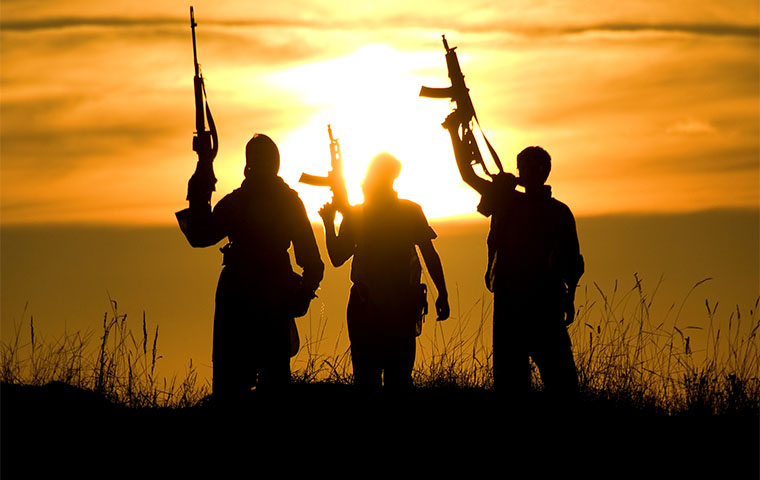
SOMALIA-SOUTH SUDAN
![]()
Among other responsibilities, higher education institutions are mandated to teach and to conduct research to generate evidence-based solutions to societal challenges. But conducting research can be daunting for academics in higher education institutions in conflict-ridden areas in Africa.
A USAID (United States Agency for International Development) survey of 13 higher education institutions in Somalia (10) and South Sudan (3), shows academics in the war-torn countries cannot access certain study sites, let alone conduct research, because of conflict. A closer quantitative assessment was done on seven of the 13 institutions.
Then, they have to constantly worry about publishing findings that highlight the shortcomings of ruling governments, such as corruption or nepotism, for fear of reprisal or being exiled from higher education institutions.
One study participant in Somalia said he had to modify his research results before publishing them – to protect his life.
“Researchers in the two countries are not really independent,” said Nathan Tumuhamye, the lead researcher and the director of the ResilientAfrica Network (RAN) at the School of Public Health at Makerere University, Uganda, presenting the survey findings. “They fear for their lives.”
Resources, partnerships, mentors
Not only that. Researchers in South Sudan and Somalia lack adequate resources, international partnerships and do not really have mentors. This has slowed quality and quantity of research in the two countries.
The findings were presented at a virtual USAID Higher Education Global Evidence Summit that sought to highlight ways higher education institutions can strengthen their core functions to promote social and economic development. The summit ended on 18 May.
Researchers surveyed 10 universities in Somalia and three in South Sudan. They interviewed 28 participants: 25 in Somalia and three from the world’s youngest nation.
They answered questions ranging from the status of academic research in the countries, its biggest challenges and how these could be averted.
Some of the respondents reported that they feared to travel to certain communities to conduct research because of the persistent insecurity, said Tumuhamye.
A respondent in a higher education institution in Somalia said armed people could meet you and ask what you were doing in their communities and kill you, he said. The government’s forces are trying to pacify the country, but there are several areas that are still very insecure.
Apart from the insecurity, the countries have not done much to fund research. Donors are hesitant to commit funds to the conflict areas. And there is little research collaboration and lots of job insecurity.
“Government says it doesn’t have money to support research because of the war,” said a participant from South Sudan. “Our universities do not have money.”
Internet connectivity
That is not all. In an era where internet connectivity has become a human right, there is less of it in the countries.
One respondent in South Sudan said their university connected internet only to the vice-chancellor’s office.
Students and staff don’t have access. Worse still, they don’t have computers. “We are basically doing things manually here,” said the respondent.
As a result of these gaps, the countries experience massive brain drain, with more competent researchers leaving for safer and greener pastures.
“The conflict in Somalia and South Sudan has affected research directly and indirectly,” said Angela Atukunda, a physician and engagement officer at the School of Public Health at Makerere University, who helped with the study.
“It has adversely impacted on research and innovation ecosystems in higher education institutions in the countries.”
But there are many other challenges.
Gender
While the countries have promoted affirmative action and equal opportunities programmes to encourage female participation in research, they have a wide gender disparity among higher education staff with PhDs. Only four out of 113 faculty with PhDs in seven of the surveyed institutions are female.
“Here, even religious leaders are against women empowerment,” said a participant from Somalia.
“They say wives should be home, focused on taking care of children, husbands and family businesses.”
Dr David Lameck Kibikyo, the vice-chancellor for Busoga University, Uganda, who did not participate in the research, said the findings may highlight gaps in research ecosystems in South Sudan and Somalia, but these challenges were not limited to the two countries.
“The challenges related to state interference, inadequate funding and poor female involvement (in research and innovation) are vivid in more conflict-ridden countries in Africa, not just South Sudan and Somalia,” he said. “Even countries which have been relatively stable for years struggle to fund their research.”
South Sudan is the world’s youngest nation after it attained independence in 2011. The country has six universities, five of which are public.
But it has been plagued by conflict ever since. Somalia, on the other hand, is still recovering from conflict. The Somali government is reviving higher education institutions in the country after they collapsed during years of civil strife. There are 114 higher education institutions with 16 million students, according to the government.
The report called for improved security, strong international partnerships and female participation to promote research in the higher education sectors in the countries.
“Higher education institutions in conflict settings should prioritise empowerment of groups that are marginalised within their institutional set-ups, with specific focus on females,” said the report. “For sustainability, universities need to mobilise internal resources for supporting research.”
Development partners can increasingly engage higher education institutions in Africa as partners in development, it said.
Governments also need to improve political stability and security in fragile areas to create a better environment, said the report.